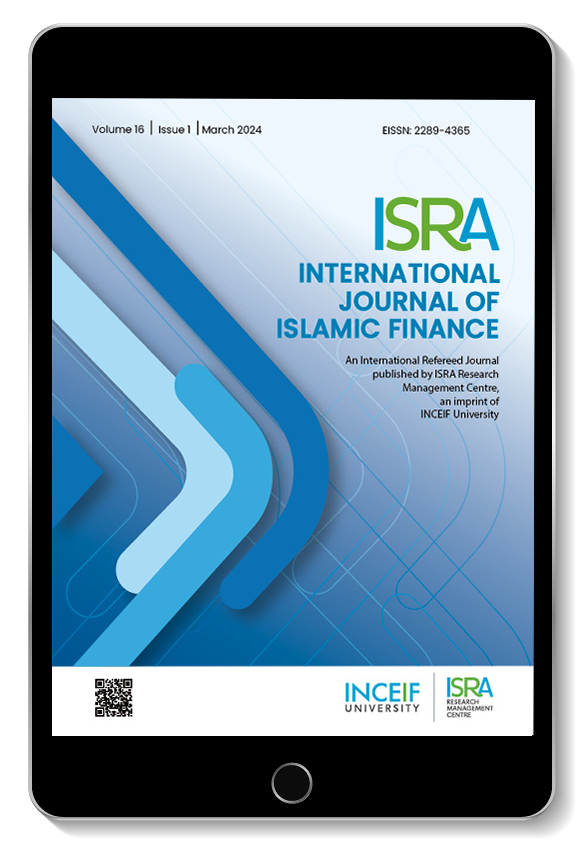Interest-free monetary policy and its impact on inflation and unemployment rates
IF 1.4
Q2 BUSINESS, FINANCE
引用次数: 19
Abstract
Purpose This paper aims to examine the effects of interest-free and interest-based monetary policy on inflation and unemployment rates for two groups of countries where in one group, interest-free monetary policy (IFMP) was pursued, while in the other group, interest-based monetary policy (IBMP) was followed. Design/methodology/approach This study involves a sample of 23 developed countries divided into two groups. The authors measure economic performance by misery index (MI), and MI is calculated as unemployment rate plus inflation rate. A group of countries, where MI is lower, performs better compared to the other group where MI is relatively higher. Findings The results reveal that in group of 12 countries where IFMP is adopted, the MI is lower and thus performs better compared to a group of countries where IBMP is pursued. Research limitations/implications The findings of this study have profound implications for the policymakers and government leaders who look for a solution to maintain both low inflation and unemployment rates. The findings in this study clearly portray that such ideal situations can only be achieved by pursuing IFMP. No wonder the countries which have been historically pursuing IFMP such as Japan, Switzerland, Sweden, the Netherlands and Denmark have been able to contain both inflation and unemployment rates compared to their counterparts among the English-speaking countries. Originality/value This is one of the most recent tests on the differences in economic performance between IFMP and IBMP. These results have significant value for policymakers and central bankers who have been struggling to maintain lower MI for decades.无息货币政策及其对通货膨胀和失业率的影响
目的本文旨在研究两组国家的无息和基于利率的货币政策对通货膨胀率和失业率的影响,其中一组国家奉行无息货币政策,而另一组国家则奉行基于利息的货币政策。设计/方法/方法本研究涉及23个发达国家的样本,分为两组。作者用痛苦指数来衡量经济表现,而痛苦指数是失业率加上通货膨胀率来计算的。MI较低的一组国家与MI相对较高的另一组国家相比表现更好。结果表明,在采用IFMP的12个国家组中,MI较低,因此与采用IBMP的国家组相比表现更好。研究局限性/含义这项研究的发现对寻求保持低通胀和低失业率的解决方案的政策制定者和政府领导人具有深远的影响。这项研究的发现清楚地表明,只有追求IFMP才能实现这种理想的情况。难怪历史上一直在追求IFMP的国家,如日本、瑞士、瑞典、荷兰和丹麦,与英语国家的同行相比,能够控制通货膨胀率和失业率。独创性/价值这是对IFMP和IBMP之间经济表现差异的最新测试之一。这些结果对几十年来一直在努力维持较低MI的政策制定者和央行行长来说具有重要价值。
本文章由计算机程序翻译,如有差异,请以英文原文为准。
求助全文
约1分钟内获得全文
求助全文
来源期刊

ISRA International Journal of Islamic Finance
BUSINESS, FINANCE-
CiteScore
3.40
自引率
17.40%
发文量
18
审稿时长
20 weeks
期刊介绍:
It is the aspiration of the editorial committee that IJIF achieves the highest rank in quality and substance. It is thus our aim that the journal be carried in the Thompson Reuters’ ISI and Scopus databases. By ensuring high standards in articles published in Islamic finance we ensure that further innovation and research is carried out and promoted in the Islamic finance industry and academia. IJIF publishes 2 issues per annum.
 求助内容:
求助内容: 应助结果提醒方式:
应助结果提醒方式:


